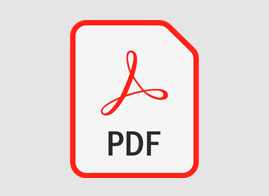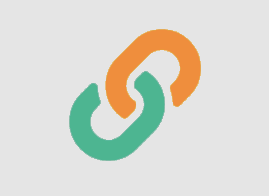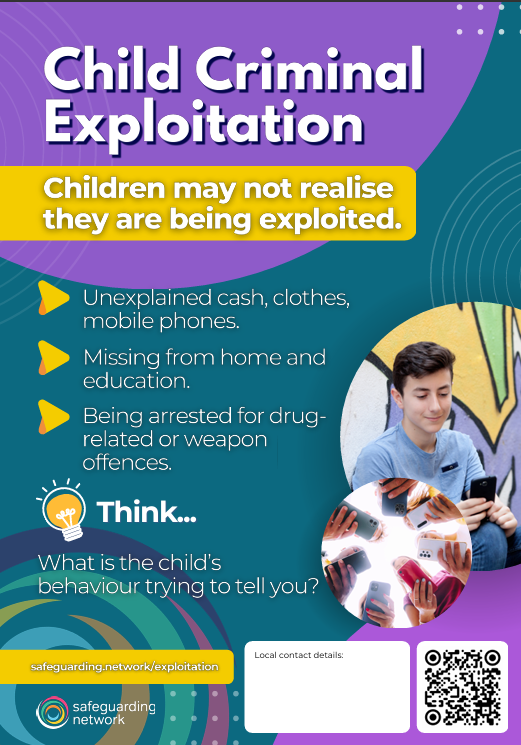Introduction
As with all forms of exploitation, child criminal exploitation can be carried out by both individuals and groups. Adult exploiters can use other children to expand the scope of their exploitation to more children.
The challenge for parents, carers and safeguarding professionals is that children who are criminally exploited don’t always know they are being exploited. Victims might believe they’re receiving compensation for their time and activities in the form of a sense of belonging, a form of protection, a sense of status amongst peers or financial gain.
Need more?
Thank you for visiting our resources pages. These are free to everyone as is our fortnightly safeguarding bulletin – general safeguarding information is too important to restrict. Become a member to access lots more, including training materials for you to deliver in-house on each topic in Keeping Children Safe in Education.
Sign up for FREE fortnightly bulletin.
What about training?
We can deliver training for your setting on this and other subjects via online platforms, or face-to-face in certain areas. Just get in touch to discuss your requirements.
Children can become trapped by criminal exploitation, because instigators may threaten victims (and their friends and families) with violence and/or entrap them into debt. Victims of criminal exploitation might be encouraged to carry weapons or begin carrying weapons to feel safer. Children involved in criminal exploitation often commit crimes themselves and their vulnerability as victims is not always recognised, but we must remember that children cannot consent to their own exploitation.
If you suspect crimes are being committed, contact the police on 101 (or 999 if you feel someone is in imminent danger) and follow your safeguarding procedures.
Definition
“Child Criminal Exploitation occurs where an individual or group takes advantage of an imbalance of power to coerce, control, manipulate or deceive a child or young person under the age of 18 into any criminal activity (a) in exchange for something the victim needs or wants, and/or (b) for the financial or other advantage of the perpetrator or facilitator and/or (c) through violence or the threat of violence. The victim may have been criminally exploited even if the activity appears consensual. Child Criminal Exploitation does not always involve physical contact; it can also occur through the use of technology.”
Prevalence
- Government statistics report child criminal exploitation as a factor for 14,420 children during assessment by children’s social care in England, in the year to 31 March 2023, up 42% from 10,140 the previous year.
- According to the National County Line Coordination Centre, 5,627 county lines have been closed since 2019.
- In the first half of 2023, 23% of cases for money mule activity involved people under 21.
- Older adolescents are more likely to be recorded as having been criminally exploited but there’s evidence that primary-school-age children are also targeted.
Additional Vulnerabilities
Any child or young person can be criminally exploited, but they are more vulnerable when they:
- have previous experience of neglect, physical and/or sexual abuse
- lack a safe/stable home environment, now or in the past (due to domestic abuse or parental substance misuse, parental mental health issues or criminality, for example)
- experience a bereavement or loss
- are socially isolated or have social difficulties
- don’t have a safe environment to explore their sexuality
- are economically vulnerable
- are homeless or in insecure accommodation
- have connections with other children and young people who are being exploited in any way
- have family members or other connections involved in adult sex work
- have a physical or learning disability
- are in care (particularly those in residential care and those with interrupted care histories).
Aspects of criminal exploitation
Gangs - from local ‘street’ or ‘urban’ gangs dealing drugs on a ‘postcode’ model, to serious organised crime groups (OCGs) operating across county and national borders.
Forced begging, busking, shoplifting or pickpocketing - children may be pushed to enact less serious crimes like these initially to test how vulnerable the child might be to further exploitation.
Financial exploitation - money laundering by coercing or manipulating children into moving money through their accounts. It can also involve children being pressured into opening a account which is then controlled by the exploiter.
Forced cannabis cultivation - victims are held in a property against their will and forced to tend to cannabis plants. This is more likely to affect older children and adults, including those who have been trafficked into the country. If anything happens to damage the cannabis crop, the victim is blamed and may be forced into debt bondage (see below).
Modern slavery and trafficking - children can be moved to other areas and forced to provide free labour and/or services. Trafficking does not necessarily involve travel to another country or even long distance nationally.
County lines - refers to drug networks (both gangs and organised crime groups) who use children and young people to carry out illegal activity on their behalf. The term originates from the use of dedicated mobile phone lines or other form of “deal line” to sell drugs from cities to suburban and rural areas.
Debt bondage - a form of entrapment which occurs when someone owes money to exploiters and is made to do tasks or ‘favours’, such as provide free labour, enact violence, steal, move items, store items and/or sell drugs.
Holding, storing and moving items - exploiters use children to store and move things like money, illegal substances and weapons. This distances the exploiters from detection whilst further entrenching victims into dangerous situations whereby victims are compelled to maintain loyalty to their exploiters.
Home invasion or ‘cuckooing’ - where criminals use or take over a vulnerable person’s home for criminal purposes, such as preparing and storing drugs, weapons and cash, and to accommodate individuals (including exploited children) working for a “deal line”.
Coercive internal concealment - involves drugs being hidden in body cavities to avoid detection. Exploiters will use threats, physical violence and humiliation to coerce children into inserting drugs in their bodies. These processes are sometimes filmed, as a means of further control.
Spot the signs
As with other forms of exploitation and abuse, there are things that we can look out for that might indicate that someone is being criminally exploited.
These include a child or young person who:
- acquires money, clothes, mobile phones, etc., without plausible explanation
- has gang association and/or isolation from peers/social networks
- is excluded or has unexplained absences from education
- leaves home/care without explanation and persistently goes missing or returns late
- is often found outside of the boundaries of their home local authority
- is stopped by police or arrested for drug-related or weapon offences
- receives excessive numbers of texts/phone calls
- returns home under the influence of drugs/alcohol
- displays evidence of/suspicion of physical assault
- has relationships with controlling or significantly older individuals or groups
- has multiple callers (unknown adults or peers)
- has concerning use of the internet or other social media
- displays increasing secretiveness around behaviours
- commonly uses slang terms related to drug use and supply.
What to do
As with any form of abuse, if you have concerns, speak to your DSL.
Check young people have safe relationships – in their family, with their peers and with your staff. Create a culture where it’s okay to talk, even about the most difficult things.
Listen and observe – maintain a stance of ongoing professional curiosity. Keep the child’s voice at the heart of your observations. Listen to what they say and observe their body language and behaviours. This is particularly important for children in early years and children with SEND.
Avoid victim-blaming language that can deflect attention from, and down-play, the experiences of victims leading to lack of confidence in reporting and broken trust.
Don’t make assumptions about the level of independence or control a child or young person has simply by the way they present themselves to you and others. Always remember that children cannot consent to their own exploitation. Child criminal exploitation is never the victim’s fault.
Be aware of additional vulnerabilities – are there children at your setting who may be particularly vulnerable to criminal exploitation? Could they benefit from early intervention?
Consider the child’s lived experiences – view each child in context. Think about contextual approaches to safeguarding. What are a child’s lived experiences in their home, peer group, your setting, their community and online?
Multi-agency working – while your primary concern will remain the child's safety, your setting may need to work closely with other agencies to ensure information is shared and that the child and their family get the support they need.
Know the signs and know what to do – use the checklists above, your safeguarding procedures and be confident to raise criminal exploitation as a possibility.
Take action – and keep taking action until you know children and young people are safe.
FREE child criminal exploitation poster
This downloadable resource raises the profile of safeguarding for your staff team. For use in staff rooms, on safeguarding boards or on the back of toilet doors, the poster includes tips, a space for local contact details, plus a link and QR codes to this resource page. Find the poster in the resources below.
DSL Training Materials
-

Child Exploitation Presentation
-

Child Exploitation - Presenter Notes
-

Handout for staff - Child Criminal Exploitation
-

Child criminal exploitation – Quiz
-

Child criminal exploitation – Quiz (Answer Sheet)
-

Child criminal exploitation scenario - EYFS
-

Child Criminal Exploitation Scenario (EYFS) – DSL Information Sheet
-

Child Criminal Exploitation scenario – Primary Schools
-

Child Criminal Exploitation Scenario (Primary) – DSL Information Sheet
-

Child Criminal Exploitation scenario – Secondary Schools
-

Child Criminal Exploitation Scenario (Secondary) – DSL Information Sheet
-

Child Criminal Exploitation Scenario – 16+ / FE settings
-

Child Criminal Exploitation Scenario – 16+ / FE settings – DSL Information Sheet
-

Child Criminal Exploitation Scenario – SEND settings
-

Child Criminal Exploitation Scenario – SEND settings – DSL Information Sheet
-

Child Criminal Exploitation Scenario – Care settings
-

Child Criminal Exploitation Scenario – Care settings – DSL Information Sheet
Resources
-

Child Criminal Exploitation Poster
-

Shattered lives, stolen futures: The Jay Review of Criminally Exploited Children
-

National County Lines Co-ordination Centre
-

Don’t be fooled
-

Debt Bondage Awareness
-

SAVE ME film and facilitator handbook
-

Spot the Signs: Child Exploitation Poster Hub
-

Criminal Exploitation Toolkit
-

Protecting Children From Criminal Exploitation, Human Trafficking and Modern Slavery: An Addendum
-

Fearless Resources
-

Child Exploitation Disruption Toolkit
-

Excluded or Missing from Education and Child Exploitation
-

It Was Hard to Escape: Safeguarding Children at Risk from Criminal Exploitation
-

The Slang Dictionary
-

I’m Being Exploited
-

Look Closer Campaign
-

Money laundering-linked financial exploitation
Save time and improve your safeguarding approach…
Bite-size training materials to share with your staff every month.
Support to explore and develop your safeguarding culture.
A huge array of resources and professional experience at your fingertips.
Get in touch now for a personal tour of the site and details of membership benefits.
We look forward to working with you.


